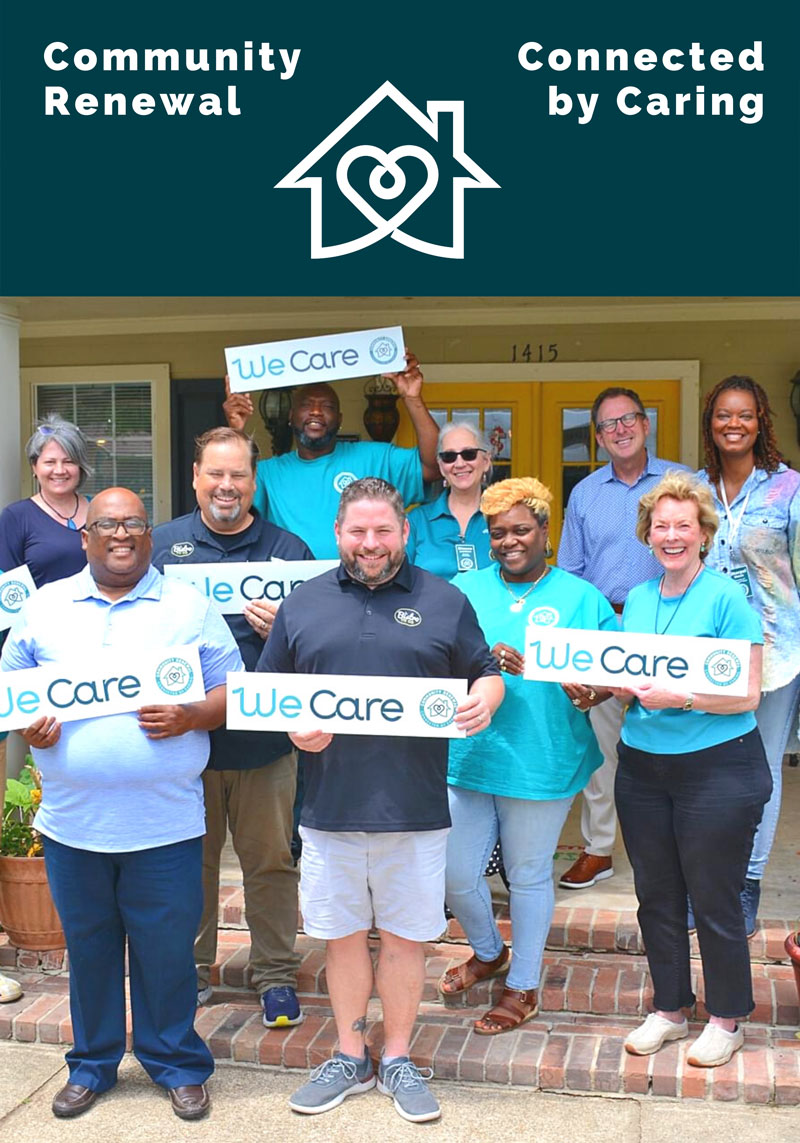
Tim Muldoon is a professor of philosophy and theology at Boston College. He is the author of a number of books and is currently working on a book about Community Renewal International.
A community of neighbors can change the world
By Tim Muldoon
Over the past three years I’ve had the great privilege of meeting a number of remarkable men and women who have given their lives in generous service to others. At Catholic Extension, where I served as director of mission education, I was part of a team that met the people nominated by their respective dioceses to receive the annual Lumen Christi Award. This award, which in Latin means “the light of Christ,” honors people who do the works of mercy in order to make the world better.
In recent years, the people who have received the award exemplify what it means to serve. There is the couple who, having grown up doing migrant farm work, now dedicate their lives to teaching the children of migrant farmers in California. There is the religious sister who survived Nazi occupation of her home town, escaped a military junta while serving in Paraguay, and who came to the United States to serve the poor in West Texas and southern New Mexico. All of their stories are of how their hearts have been formed for service, and of how their lives have borne remarkable fruit in the communities they serve.
When I was asked to learn about the nominee from the Diocese of Shreveport in 2019, I expected a similar story. I looked forward to learning about a generous heart that has touched others. But almost immediately, I was struck by the story of Mack McCarter and Community Renewal International. Something was different here — something that set this story apart from so many others.
In a word, the difference was scale. All the Lumen Christi nominees over the years—dozens each year over more than 50 years—are light to the world. Yet Community Renewal International represents more than just an individual seeking to do good. It represents something that Mack taught me when we met this past summer to talk about the Community Renewal model: a “social technology.” When he first used this term, I didn’t know what he meant. But I have come to understand that this social technology is the key to what sets Community Renewal apart. It’s the model that has already scaled up to include communities beyond Allendale or Cedar Grove in Shreveport, and which will include many more communities in the coming years.
What this social technology boils down to is purposeful friendship spread out over entire communities. When I visited Shreveport, I met men and women, black and white, young and old, dedicated to the principle that specific acts of kindness could develop into friendships, and that thoughtful friendships could help overcome the loneliness, isolation, and desperation that corrode lives and neighborhoods. More than just random acts of kindness, though, these acts had to be visible, part of a larger movement of people dedicated together to building a better community. It is good to be a neighbor, but it is even better to be part of a visible, large-scale community of neighbors all seeking to help each other, especially those who are most vulnerable.
I’ve come to believe that the model of building communities around purposeful friendship can indeed change the world.”
I’ve come to believe that the model of building communities around purposeful friendship can indeed change the world.”
Mack was named the 2019 recipient of the Lumen Christi Award. Having brought a group from Catholic Extension to Shreveport to learn the Community Renewal story, I made a promise to myself that I’d find a way to return to learn more. So this past summer I reached out to Mack to ask who was writing the book about Community Renewal, realizing that there were many people outside of Shreveport who needed to know about the social technology that was driving its success. There needed to be a book about the purposeful friendships that can re-village-ize our cities. And so I told him that if someone wasn’t already writing that book, I’d love to do it!
So began our conversations, which have grown to include many others who give generously to the organization. As I continue to learn the stories of the people impacted by Community Renewal, I get excited to share its story and its social technology with others. I’ve come to believe that the model of building communities around purposeful friendship can indeed change the world, one neighborhood at a time! And I hope that the book can be part of shaping minds and hearts to be part of that positive transformation.



